#and nelia being like ....interesting name
Text
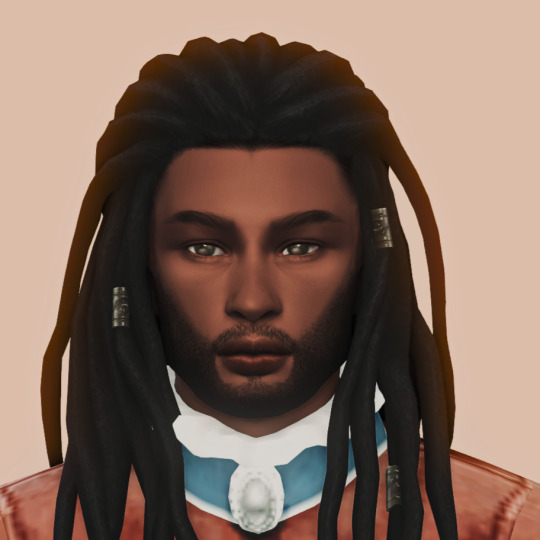
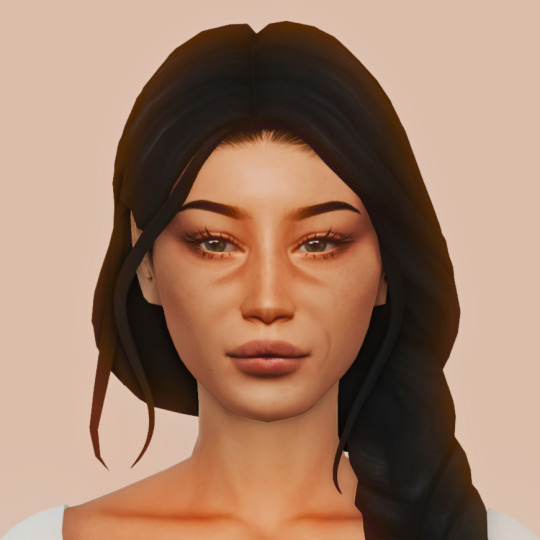
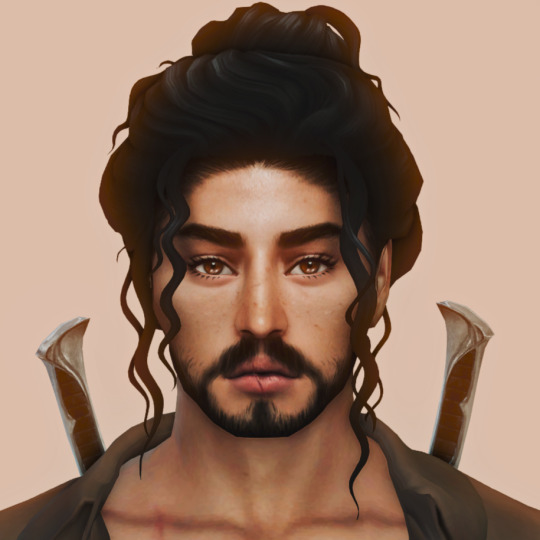
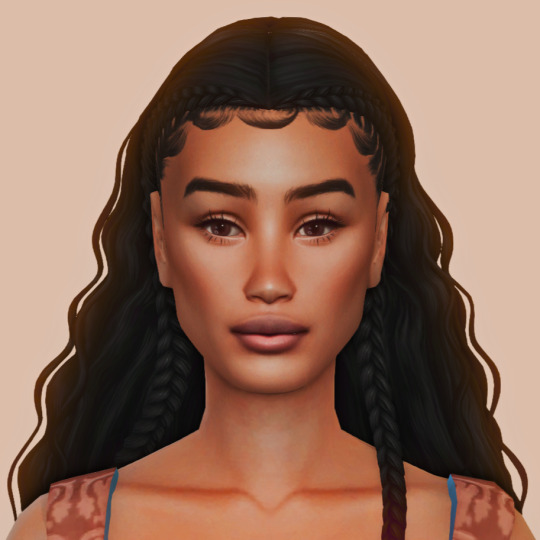
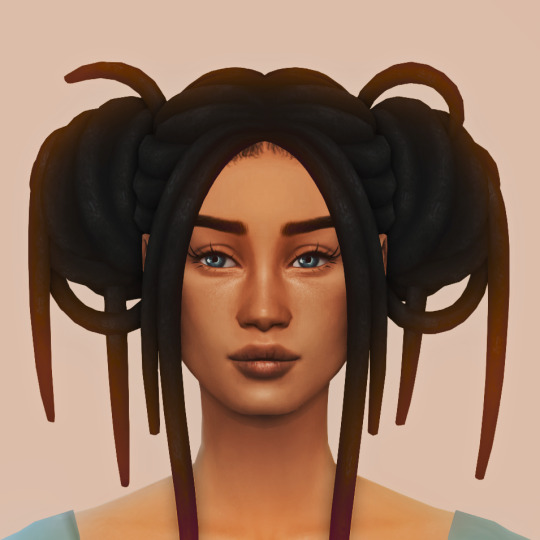
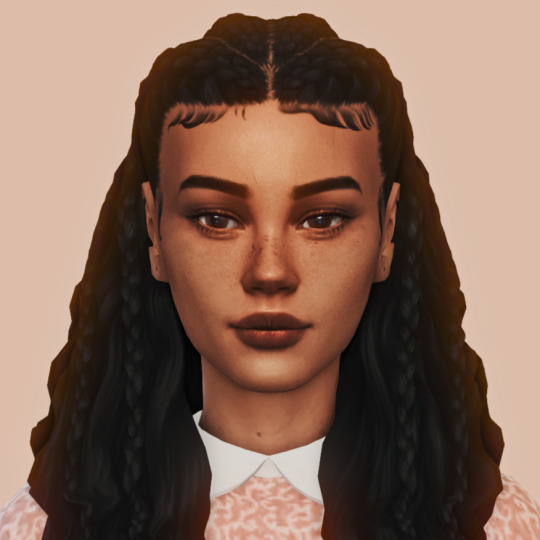
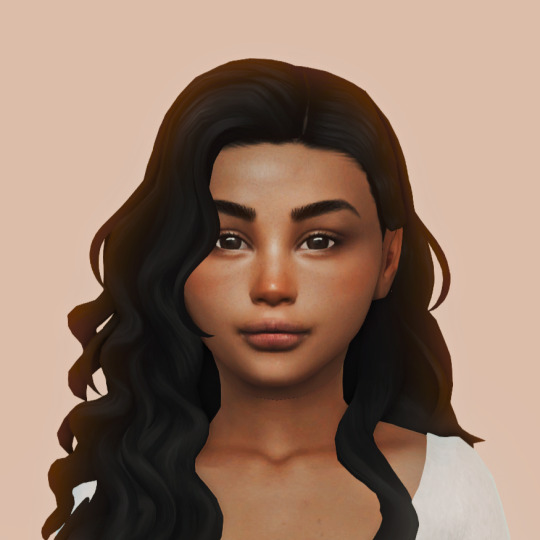
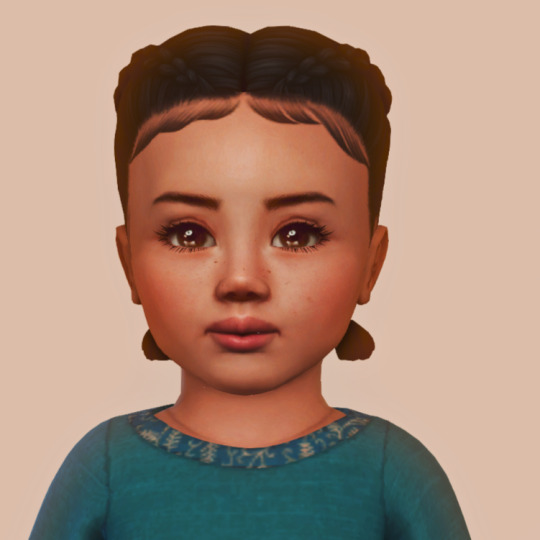
just two idiots and their idiot children
#oc: ilanius naeroum#do i tag everyone elses dkljadjkf#ya know what why not#oc: ydin docken#oc: panilvia docken#oc: adiza docken#oc: narsi docken#oc: erdri docken#oc: eldi docken#oc: sira docken#also ilanius's official last name is in the og screenshot#so for those who got the full screenshot yw#i might change his tag to add it later#probably when i get to starting the character page#there's no real reason to not share it#i'm just lazy <3#though i plan to have a little scene about it#bc it's origin lorewise and how ilanius wouldn't know what it means#and nelia being like ....interesting name#satr
9 notes
·
View notes
Note
💞 / Creed -> Estra
Five Ways to Say I Love You || Accepting! @allthatisleftinthedark
Holding and Physical Affection:
-Creed is much like Es in that she'll gladly return all of Estra's physical touches, and more often than not, seeks it. She's usually not one for cuddling up to people outside of close friends, she'll give people handshakes or clap a hand on their shoulder, but Es is one of the few people she'll actively hold close. It's probably surprising to see that Creed isn't an overly physical person. Even with flings, she's not one to really cuddle up to someone, they'll have to make the first move.
Pillow Talk:
-Creed's not an overly talkative person, which I think is evident when she's talked to members of the Crownswatch. I would argue Dejin and Khiye are the ones she's more willing to chat with casually or about serious topics on the merit that they've fought and bled together. It's not because she doesn't like people, it's because she feels kind of awkward. Estra however, almost immediately caught her eye, because she doesn't usually stay with caravans to talk with people. Though it helps that she probably came across them taking notes and her natural curiosity made her take the first step and talk first. Creed is a lot more talkative with them than she would be with most other people.
Commitment:
-Creed has never committed to any sort of relationship, she's used to one night stands and flings, but with Estra, even though they've never gone beyond anything platonic, but with romantic implications, she's pretty much never shown interest in anyone else outside of playful, noncommittal flirting. Even when Creed didn't really acknowledge her desire for a romantic connection with them, she's never gone to seek out sex with anyone else after they got to know each other.
In a way, even though she's still figuring out just why she loves Es, it's her budding love that motivates her to finally settle down and figure herself out as a person and who she wants to be. I also suppose that Creed's love for them comes from the fact that they don't care about her past or family name, to them, she's just Creed.
Creed's just a lot more honest about herself with them. She's among the few people who can call her Nelia, or Nelly. Estra's also probably one of the few people who can read her like a book. Hence why they're often able to figure out when something is on her mind.
Gift Giving:
-Much like Estra gives her handmade things, Creed will often do the same, or she'll bring things that she thinks they'll enjoy studying. This of course, has resulted in their shared tent being filled with a bunch of random trinkets from Creed's travels, or tools she's made to help them with their studies as well.
Acts of Service:
-Creed would do anything for Estra, if they asked her to. She's more than happy to do what's asked of her simply because she likes spending time with Es. It's also noted that Creed is very protective of Estra, and if they were ever threatened, it would be one of the few ways to make Creed truly angry.
#allthatisleftinthedark#this is kind of a fucking mess and i was very scatter brained#but a lot of Creed's love is expressed physically and through her willingness to talk about herself
3 notes
·
View notes
Text
🎨 favorite color(s): I always get compliments when I wear purple, and it's a dear colour to me. But my very favourite is red. Every shade of red. Burgundy, scarlet, wine-red that pale red that's only just red enough to be true red. Yes.
📚 currently reading:
OK, so I tend to juggle several books at once - it works for my brain, and I am getting better at making sure I don't forget about any individual ball even if it is up in the air for lengthy periods.
Fearless Writing by William Kenower. Writer friends, this one is great if you don't so much need a book on the writer's craft as much as you need motivation! Every reading session I have with it puts me in the writing mood.
Cymbeline by Shakespeare - just started this one yesterday because some good friends just finished performing it, and I wasn't able to go.
The Lord of the Rings by Tolkien. An old favourite being brought alive in new ways by the fantastic voice of reader Phil Dragash. I LOVE how much life he puts into the narration, not just the prose!
Beasts in My Belfry by Gerald Durrell - a hilarious memoir of how he became a zookeeper at age seventeen just after the First World War.
Prayer: The Great Conversation by Peter Kreeft. One of the best books on prayer I have ever read. Very flowing, accessible, and meaningful.
And whatever my students are reading... That usually takes priority, but I am just going to name the books I have on the go for myself.
🎼 last song: "Cat Walking" from the Hwarang soundtrack. I don't care for the show, but the soundtrack is excellent for writing with.
📺 last series: I don't watch much film or TV these days (I should! A good one can be so well crafted,) but I did watch an episode of Poirot with my family the other night. "Dead Man's Mirror." Also thinking it would be fun to watch another literary web series. Maybe I'll check out "Headless" or "From Mansfield with Love." "The Chosen" also looks interesting.
🎥 last movie: ...I actually can't recall.
💡 currently working on: I'm on break at the school where I work just at this moment, but I'm revving up to run an audition for the play I'm directing this afternoon! I also have a couple of longer scenes on the go - in the one, Nelia finally gets to run into Graham while he's awake (all too awake, I'm afraid,) and in the other, Ashdown is about to get the shock of his life as he comes to treat his royal patient.
If you'd like to jump in, consider yourself tagged.
3 notes
·
View notes
Note
heyyooooo, this is for the oc asks! Her name is Nelia, and she's a mix of sarcastic manner and there's a bit of softness in her too (around the people she loves heehee), very very charming also - she adores being on adrenaline, like doing things that makes her heart go insane like, in her universe murder 😭 but, imagine it in like something adrenaline like (maybe bungee jumping out of a plane or something y'know)! She adores anything heart-shaped (sunglasses especially!) 👀✨💕
Thank you, Alya!! <3
Ooooh interesting 👀 Considering the murder detail lol, I am tempted to pair her with one of my Sidesteps...but I think a better match might be my detective Dove Shepherd. Dove would appreciate the sarcastic banter, and I think she would gladly partake in adrenaline-inducing activities (she’s very “mind over matter” about things, or at least up until the point that she’s in actual real danger).
I’m also not super familiar with Nelia’s canon universe, but I’m imagining the two of them having a kind of flirty murderer x detective investigating the murder dynamic, like Killing Eve or Hannibal (here I’m mostly guessing from gifs rather than knowing anything about these shows lol).
3 notes
·
View notes
Text
Naturally

Naturally is a short story about the life of a Dutch-American woman who settled in Indonesia during the early days of its independence, the legacy she carried across the ocean, and the legacy she built in her new homeland. The story reflects on the most poignant events in her long and candid life; from the circumstances that made her birth possible, her childhood in the tumultuous early twentieth century, her new life in a new nation, to the troubles of her offspring, the return to her birthplace, and her dying days. These vignettes of Eleanor Mangkoedimedjo’s life serve as a testament that much of what we are we owe to those who came before us (whether good or bad), particularly our mothers and the mothers before them, and understanding our past often means understanding our future.
Name: Eleanor Mirabelle Mangkoedimedjo
Maiden Name: Schuyler
Other name(s): Laila Mulyati
Place and Date of Birth: Batavia, New York, August 11, 1928
Parents: Lucas T. Schuyler (Adam Sutansyah) and Ana L. Schuyler (née Lahaije); Rosminah Sutansyah
Grandparents: Pieter Lahaije and Johanna Lahaije (née van der Maas); Thomas E. Schuyler and Eleanor C. Schuyler (née Thompson)
Sibling(s): Coralea Schuyler and Miriam van de Plaas
Spouse(s): R. Prabowo H.L. Mangkoedimedjo
Children: Matilda E. Willem and Philomena K. Develsbourne
Prologue
Maastricht, the Netherlands
1932
Gerrit Beuling was a tall, thin man with a long swan’s neck and a protruding Adam’s apple. His long, auburn hair went to his shoulders, and was combed back. He trudged along the brick road in that humid summer with a wooden case under his right arm, and he carried with him a manner of expectation.
He stopped when he came to a narrow alley with a stone staircase that led to a wooden door to its left. He cautiously made his way through, up and in, passing by one grimy corridor after another. He arrived half panting at a room at the end of the corridor, covered with faded ruby-colored floral wallpaper and adorned with fine furniture. He placed his case down and took off his coat. He wiped his forehead with a handkerchief and took a deep breath.
“I don’t understand why you’re wearing a coat like that in such a hot day.” Said Madame Lahaije. She was perched upon a crimson chaise-lounge by the window in a severely outdated, purple buttoned up dress that seemed to betray her own words to the young painter.
“For presentation, of course. And I put a lot of my things inside my coat pockets.”
Madame Lahaije sneered. “A gentleman never puts things inside his pocket. Unless it’s money, of course.”
“Are you ready, Madame?” He asked.
“Ready as I’ll ever be. Do you think this dress is fine?” She asked, adjusting the stiff collar of her dress.
“It’s beautiful. But what a dress to wear in such a weather.” He answered. He was happy with the ironic echo.
“For presentation.” She replied, reassuringly. “Let us adjourn to the other room, shall we?”
She rose up slowly from her seat and walked to the other room as if Gerrit wasn’t even behind her. The other room was a brightly lit, white-paneled alcove at the side of the building that faces the garden, and beyond the horizon lies the countryside. She then proceeded to sit upon a blue, velveteen chair and pointed Gerrit where to sit. Gerrit opened his case, and laid out a set of watercolor paint on a table next to a wooden easel. He placed a canvas upon it and looked at his subject.
“Am I good enough?” She asked.
“Of course.”
Madame Lahaije looked at the boy sitting across her.
‘So young’, she said to herself.
She carefully combed a few strands of loose hair from her teased grey crown and adjusted her collar.
There were a few minutes of silence.
“Eh-hem.” The lady cleared her throat to break the awkwardness.
“Getting impatient are we, Madame?” Asked Gerrit.
“No. I understand this will not be fast work.”
“Are you sure you’re comfortable in that dress?”
Her eyebrows went up and her eyes squinted.
“Would you rather I take it off?”
Gerrit bit his lips.
“My apologies.”
“You know,” she uttered, her face building up to a slight smile “the last time a man said that to me was my husband, asking me about my wedding dress on our wedding day over 50 years ago. We didn’t have a conventional wedding, you know. My family had disowned me for running off with a man twenty years my senior, and he didn’t have any family left, so it was a few friends and the servants. I remember the dress was white and was very tight. I hated being in it but I looked good in it. Pieter said to me 'Johanna, are you sure you’re comfortable in that dress?’, because he heard me gasping whilst my bridesmaids were closing up my corset. He must’ve thought I was choking or something. It was a humid day, much like this.”
Gerrit’s eyes didn’t turn from the canvas.
“You must’ve looked beautiful.”
“It was a hundred years ago.”
“Oh, I don’t know. You’re still beautiful now.”
Madame Lahaije was not one to take compliments or responded to them, but enjoyed them altogether.
“Don’t you have a girl, Gerrit? How old are you now, 27?”
“28 this October. And no. I don’t have that much interest in courting girls.”
“Do you like the boys, then?” She asked mockingly. Gerrit made no response.
“My daughter must be around your age now. I wonder if she’s married.”
“Don’t you keep in touch with her?”
“She hates me so. She lives in America. Ran away 5 years ago.”
“Why does she hate you?”
“Ah, who knows, schaadt. Us mothers do what instincts tell us to. At the end of the day, it’s still a stab in the dark to assume whether or not our children like us. At one point, they will hate you.”
She continued. “I know it’s a terrible thing to say, but she was an accident. I didn’t plan on having kids with Pieter, but then we did. And not long after she was born, he died, which is when I started the business. I made deals with a few men in some places. I took in homeless girls and groomed them. Of course, I am no Saint for turning them into prostitutes. But at least it provided food at the table for them and a roof over their heads and mine, ja?”
“I suppose.”
There was more silence. Madame Lahaije scratched her right eyebrow half-unsure, wondering if the painter will find it annoying that she’s moving around, but there was no response from him. She looked as stiff as a sculpture, like a purple tulip turned upside down, frozen in winter. She was in her mid-seventies then but retained the outline she had in her youth—a dark and well-pronounced outline that emphasized her bones and her heavily-lidded eyes. In her youth, she was a great beauty, though she never thought of herself that way.
Eventually she asked Gerrit ‘normal’ questions—of the weather, of recent happenings in town, and of the interesting stories that happened in her brothel, for instance, the girls who became pregnant would be sent to the abortionist, and those who choose to have the baby will be sent away. She also told him of men who trespassed the boundaries in treating the girls and how often she had to march into the bedrooms and pull them out by any of their parts and kicking them out to the streets. Gerrit nodded and gave some short responses. Madame Lahaije simply went on and on. It was just the way she talked.
“But I do miss Ana sometimes, you know.” Madame Lahaije uttered, wilting a bit. She was talking about the bad economy a few seconds ago. “How can I help it? She came out of my mangy twat and she’s the only family I have.”
“Such are the ties in blood.” Gerrit said.
Madame Lahaije turned back to concrete. “I was turned away by my own mother, left at the backdoor of an orphanage like a grocery delivery.” She said coldly.
“The family that took me in, the van der Maas bunch, was more than kind. But I rebelled. I ran away with the painter and never saw them again. I was disowned. So what? I’ve been disowned the minute I crawled out of my mother. I couldn’t stand being locked up in the house.”
“But,” She added. “thanks to the education that they provided, I turned into the woman I am today. I am no idiot like the tarts I employ, who can strut but everything they hear on the right come out of their left. I keep a close eye on my accounts and I know of a great deal about literature, economy, and politics. So I am grateful, I suppose. If I weren’t a lady I’d have gone to war.”
Gerrit smiled.
“My adopted father was a timber businessman. The mother did nothing but groom her daughters, which included me, into fine ladies every single day from the minute she wakes. The brother was, oh, a handsome gentleman. He followed in his father’s footsteps. He died, however, a good six years before I fled. Of cholera.”
Her head was straight and poised, with her eyebrows way up on her forehead.
“He was my first love.” She uttered, and continued.
“Mother van der Maas was a strict woman, unlike her husband, who was very much at ease. She was the only sort of mother I ever had, and I was 9 when they adopted me. My need for a mother had rotted years before I met her. Such a shame, no? Nevertheless, I pleased her need for a daughter. Her real daughters, Maria and Nelia, were skittish little things. Very fragile. And so Mother van der Maas took a preference for me. Can’t imagine how she felt when I left them. Mustn’t be like what I felt when Ana left. I remember, I caught Ana leaving with a suitcase in one hand, down by the foyer. I say to her, ‘Must be so easy to leave all this behind’. Well, I thought it, but I did not say it. I simply acted as…a figure of authority, if you must, to this young girl, whom I knew I will never see again or hear from again. She said nothing and left hurriedly. “
There was a silence for a few moments.
"Ah, well.” She shrugged.
“I guess I was never meant to be a mother.”
Gerrit smiled.
There was a silence for a few moments.
Gerrit suddenly rose up.
“I think that’s enough for today. I’ll continue again tomorrow.”
Madame Lahaije was somehow a bit surprised at this but felt settled.
“Fine.”
He draped a white cloth over the canvas and packed his things into the case.
“Same time tomorrow, then?”
“Yes.” Answered Gerrit.
Gerrit approached Madame Lahaije, and gave her his hand. Not for a handshake, but for a kiss on her hand. She let him. The kiss was swift, and almost felt like a knife.
“Thank you, Gerrit.”
Gerrit smiled and walked away.
There, in the silence, Madame Lahaije looked out from the window, to the meadow just beyond the house a few miles away.
“What are you thinking?”
---------------------------------------------
The Past
Batavia, New York - Bandung, the Dutch East Indies
1924-1945
The best thing she did was pretending that she wasn’t hurt.
Eleanor had always been a woman with such pride and stubbornness; even when she was a little girl, her mother Ana would chide her for sassing back. Her poor old mother didn’t want to be harsh on her, because her own mother was draconic to her. Ana had three children, but Eleanor, the youngest, stopped becoming her child and became her daughter when she was just six.
Oh, how Eleanor reminded her so much of her own mother. Even when Eleanor was named after her paternal grandmother, her temperament was quite similar to her maternal grandmother, a proprietress of a Maastricht brothel that Ana had abandoned out of spite at the turn of the century.
Before we go to Eleanor, we must learn of the stock that she came from; Ana was born Ana Louisa Lahaije to Pieter Lahaije and Johanna Lahaije (née van der Maas)
Just twenty-one years old back then in 1924, Ana sailed for six days from Hoek van Holland to the shores of America on a migrant ship. As far as she was concerned, she never had a mother, only a cold, leering phantom that she used to see at the other end of a dinner table. It was the prostitutes that worked in her brothel that became Ana’s mothers: Fleurtje was a great cook, Trienke taught her how to sew, Lotte gave great advice, and Madeleine sang songs with her. Johanna Lahaije only did three things for her throughout her life: she gave birth to Ana, she criticized her, and she let her leave. Johanna had caught her leaving with a suitcase at dawn and said nothing. She stood atop the staircase with her claws on the balustrade and she stood by as her daughter, like a deer caught in headlights, fled for the so-called Land of Opportunities. Of course, it was easy to assume that Johanna never loved her. Who knows, right? People tell you ‘I love you’ in different ways.
She had settled in New York and was married into a rather affluent Boer family, the Schuylers. She had married their youngest child, Lucas Schuyler. Her in-laws were the personification of Great White Hunters, who were ‘adventurers’, so to speak, along with their business ventures that took them around the world, while Lucas helped his mother at home and studied architecture in Cornell. Ana became a seamstress and found clientele in the sprawling metropolis, and gave birth to three daughters: Coralea, Miriam, and Eleanor. The Great Depression struck and though they did not suffer too much, the marriage between Lucas and Ana had cracked beyond repair from arguments regarding money to the spoiling of the children.
Lucas, envious of his father and brother’s adventures, decided to leave for the Dutch East Indies, having heard of the nation’s struggles for independence from the colonials that Lucas descended from. Ana refused to go, of course, since she did not drag herself all the way from Europe just to sail to some godforsaken land at the edge of the world. Much to her chagrin, Eleanor went along with her father. She enjoyed hearing the tales she used to hear about her grandfather and uncle, and she wanted to be an adventurer herself. They said goodbye and little Nortje was none the wiser. To the end of her days, she had always been her father’s child.
Eleanor was so proud of herself and her father. She had heard about the Emerald of the Equator from her father, a land so rich and green—filled with opportunities much heartier than the selfish aspirations of America—and thought of her future and the nation’s. One would think that a New York gal would be used to the urban ways, but even her days on her grandparents’ farm was nothing compared to the years she spent in this new land, and she fit right in with all the things other ‘expatriates’ couldn’t stand. They changed their names, too, and their religion. They settled in Bandung and became Muslims, thus Lucas and Eleanor Schuyler became Adam Sutansyah and Laila Mulyati. Mama Ana was not there to reprimand her for sassing, but instead it was Ibu Rosminah, a Sundanese lady so delicate and earthly one would think she was a fairy of the forests. When wartime came and the whites fled, Laila’s family stayed in support of the nation’s independence. The family did not approve of this. She didn’t care. Laila Mulyati did not care.
---------------------------------------------
Bandung and Kuningan, Indonesia
1945
Laila met her husband, Raden Bei Prabowo Mangkoedimedjo, in Bandung. Bowo was a neighbor’s pen pal and of gentry birth, and he was instantly head over heels with the dark-eyed Laila, as if a personification of the girl in Panon Hideung herself. They married just as Indonesia gained independence and had twin girls in the following year. Laila was just eighteen when she had babies and it was not easy. Motherhood was something foreign to her and she had to learn it by herself. As nice as Ibu Ros was to her, her volatile relationship with her biological mother was enough to leave her incapacitated when it came to motherhood (mothering, on the other hand, is a different matter altogether). Still, she tried her best. She really did.
---------------------------------------------
Kuningan, Indonesia - Boca Raton, Florida
1975
Philomena had graduated from college. Her twin sister Matilda did not stick with her as planned and decided to settle and breed with her high school sweetheart. Philomena did not have the patience to be an egg-brooding hen. She had expressed to her friends that she wanted to leave as soon as possible, especially from her Moes’ smothering. She had chosen to study Sociology at the University of Indonesia and stayed at a boarding house there. That never stopped her mother from dropping in from time to time all the way from Kuningan. She allowed Moes to smother as she pleased because she wouldn’t have to use her own money to buy food when she’s visiting, but it is quite exhausting to allow yourself to be smothered for years and years. Moes overheard this exchange (being the devil incarnate) and the next morning, she told Philomena she is to stay with her Aunt Coralea in Florida for a year.
Philomena was stunned, of course, and before she knew it she was in her aunt’s little condo in Boca Raton. The stay did not prove futile, as she became engaged to Southern aristocracy in the two years she was there. They had two wedding ceremonies; one in the US and one in Indonesia. Moes had a dance class to teach (she taught traditional dancing to the young ladies of Paterosari), so she did not see Philomena off on her day of departure. She hugged Moes goodbye at the door and left. Philomena was none the wiser.
Would you feel hurt telling your child goodbye as she became your daughter?
---------------------------------------------
Batavia, New York
1988
Ana’s three daughters came back to New York. Ana had experienced a series of illnesses and was bedridden, so of course they had to settle the estate. When their father left for Indonesia, their paternal grandparents ‘adopted’ their mother and left her the land. The land had been divided and sold throughout the years, and by that time, it was just a small but beautiful piece of land that had been the last home of Ana Schuyler. Her daughters were no longer little girls then. Coralea never married and became a landlady in Florida, so she knew the details of the estate business better than her sisters. Miriam knew next to nothing, having jumped from relationship to relationship and marriage to marriage, hoping that she’d at least get some of her mother’s jewels. Her husbands had always been Dutch men, and Ana refused to visit her in the Netherlands.
And then there’s Laila. She had grown so much from that little girl she saw leaving on a ship with a flowery hat. Still Ana chided her for her sassing even when Laila had two children and four grandchildren by that time, but the years had mellowed them to the point of the interaction becoming in jest. In Laila’s eyes, Ana saw herself, and for the first time, Ana understood her.
She came home as Eleanor. She thought it was the least she could do. She had such pride, that woman.
---------------------------------------------
Kuningan, Indonesia
2012
Matilda had died then, of emphysema and lung cancer. Her husband Hugo had disappeared years ago with no explanations, which sent her spiraling to instability. They had four children, and even their children were affected by Matilda’s thunderous descent. She had manic depression, apparently, and Moes remembered she saw the patterns in her own family—the aggression, the moodiness, the pitfalls of depression. It was harder for her to see her daughter suffering than to see her dying, though both practically ripped her apart. Still, she did not show it. Everyone was amazed at her strength.
By the time she was a widow, she had been many things and seen many things. She was involved with revolutionary women’s groups in the past and had joined efforts with other women to fight for the women’s cause in her town—and she understood her privilege as a descendant of colonials. In wartime, she volunteered as a nurse and eventually became one of the most senior members of the Indonesian Red Cross. She hinted, at one time, that she was a spy for the Indonesian rebels, and she defended her medical station from the Dutch with guns blazing. Of course, nobody ever found out if those things were true, but it made interesting conversation in her dance and exercise classes, knitting classes, and bird watching group.
Philomena had buried a husband and divorced two husbands by that time, and she had nothing left to stay on. She had been married long enough to her archeologist first husband to see the world. She had performed in nightclubs, cabarets, and theatres from Las Vegas to Paris. She had discovered a type of lizard in Brazil that was named after her, she had lived through the frigid winds of Siberia eating only dried food, and she even visited the elephant matriarch that killed her Grandfather Thomas in Tanzania. She had a trunk full of pictures, two trunks of knick-knacks, and a lifetime of memories to bring home when she decided to move back to the little town of Paterosari in Kuningan.
For forty years or so, she never stepped foot into her home country. Moes never allowed her, you see. It was always ‘I’ll come over to Atlanta to see you’ or anywhere else Philomena was staying in the US. Philomena never understood why. She never really understood why she was sent off to live with Aunt Lea back then and why, for forty years or so, she was not allowed to return home. As far as she was concerned, she wasn’t a communist connection forbidden to enter Indonesia because of the New Order’s restrictions (though her mother was probably closer to that), so why isn’t she allowed to come home?
It was 2012, and as she walked through the front garden of her house in Kuningan, laden with ferns and devil’s ivy, she decided that this was her last stop. It was as if she had always been there all this time. It was as if she were there just yesterday. Moes greeted her as any mother would, and soon began her readjustment from her worldly past life to her current, more provincial condition. Could it be that Moes was afraid that if her daughter returned home, she would never want to leave again? That she would stick by her dear old mother just to please her? That she would give up her exciting life in the great world beyond for the guilt she felt over leaving Moes?
Philomena never knew, not even when Moes died many years later. She did believe, strongly, that all this time she had been on the longest leash. She and her sister Matilda were her mother’s first and only children. As much as she struggled with motherhood, Moes was fiercely devoted to her children. A lot of this was lost in translation, Philomena supposed, which is why she wanted to leave. Perhaps Moes felt that she did not want Philomena to stick by for her sake. She did not want Philomena staying with her while dreaming of another life, while wondering what could be or what could have been.
Perhaps Moes loved her too much for that, so she allowed herself to be ripped apart for her flesh and blood to be happy. She did live that life, so she did not wonder about what could be or what could have been because she had been, and now it’s over. Philomena thought of how unlucky it is that children cannot choose their parents and how most of the time, it is parents that choose to have children. In retrospect, she was quite thankful.
---------------------------------------------
The Future
She would remember, as she lay dying many years later, that she had many names. Eleanor, Nor, Nortje, Laila, Ibu Mangkoedimedjo, Oma, and Moes. All her life she had been known by these different names, and different people called her these different names in different situations. She had learned the pain of having dragged one’s ass from one place to another and the cognitive dissonance of having several names. She was no stranger to ambiguity and ambivalence. She reassured herself, in the silence of her cold bedroom, that it was never anyone’s fault. The broken hearts, the damaged consequences, and the wounded egos—all of them are inevitable in any sort of relationship.
The children were born into this world and they were never theirs to keep. Soon they will build dream after dream, and some dreams are ruined by their parents, parents that they did not choose. Is it their fault? Of course. As adults, they are obliged to be responsible for their actions. Anyone who says otherwise is a goddamn idiot. But then again, there are many ways to say ‘I love you’, and a lot of these things could easily be lost in translation. Does it matter, then, whose fault it was at that point?
At some point, the little eggs must leave the nest, and at that point, they were no longer eggs. What restrains someone from running towards their loved ones who are about to depart as they wave from an airport gate, a train station, behind the fence of an ivy-laced garden, or a wooden door? What difference would that make? Would that keep them at your side for another day? For what purpose?
It is rather difficult to think how hard it was for one to uproot oneself to another place, only for your offspring to come back to the place that was left behind. After all that hard work? What difference would it make?
Well, at one point, one must’ve breathed a sigh that could not be helped. As the world turns and turns you long for it to stop, for you to sit comfortably in your chair without the hours robbing you of your loved ones. You ask whether or not generation upon generation of guilt, of pain, of hurt, of joy, of laughter, and of love was worth all that trouble all your life.
At least she had lived her life then, and most importantly, at least she had come home.
8 notes
·
View notes
Text
Hi! @yoharudragneel tagged me in an About Me tag!!! First of all, thanks for tagging me!!!
Let's get to it then!
Nickname: Mostly Nelia and Nelira, though I've sometimes been called Mart, and other versions of my given name like Martuki or Martuchi, which I like way less because of how feminine they sound to me. And then there's also Mat I guess, though it's really just my name, but I pretend that it's a nickname for my given name and use it as such, to try to convince people to call me Mat without outing myself first!
Zodiac: I'm a Scorpio!!! My birthday is next month!
Height: If I don't remember it wrong, I'm 1.53 cm, which is 5ft.
Hogwarts House: Ravenclaw, just because really, I liked it and I kept it as my house xD.
Last thing you googled: If the dude inside the sword/transistor in the game Transistor has a name. I'm usually good with names (in fiction, I wish I was as good with real people's xD) so I was confused that I had forgotten, good to know he just doesn't have a name😢.
Song stuck in your head: Usually, I have several songs stuck in my head at once, but today it's almost only been Karma by AJR.
Number of followers: According to Tumblr, I have 110 followers, though, because I value honesty😝, I'll say that if I count them myself, I can see 54 followers, which is already a lot for me!!! Thanks to all of you for sticking around!!!💙💙💙
Amount of sleep: I've checked my app because I'm not sure I'm usually aware of exactly how much I sleep? Apparently, I sleep an average of 6 hours every night. It's not too much, but it could be less😂.
Lucky number: 611, because at some point both 6 and 11 were my favorite numbers because of two book series that I loved, and it stuck!
Dream job: Videogame developer!!! It's actually what I'm studying right now! I love coding, and videogames have always interested me. Also, this might be naïve, but it feels like an area where I could learn and put to use my different interests in writing, music, etc😅
Wearing: A light blue t-shirt and black jeans!
Favourite song: Technically, any of the songs that I like singing and especially the ones that I've taken the time to record covers of. This is because the song that I listen to/like the most tends to change from week to week, so because of nostalgia, I'm gonna say the song that's been in my favorites list for the longest and that I still sing very often (because it's great), Journey to the past from Anastasia❤️❤️❤️
Favorite instrument: My favorite instrument to play is the ukulele because of how easy it is, (which means I can sing along while playing it). But my favorite instrument to listen to is the piano. I actually took 5 years of piano lessons as a kid, but I lacked the dedication to advance past a certain point. It was nice anyway!!!
Aesthetic: I don't really think I have an aesthetic? I'm too messy for that xD. Unless cozy is an aesthetic? But not like rustic cozy, like cozy but technological??? As I was saying, no aesthetic, sorry people!
Favourite author: I agree with Yoharu here!!! This is so hard to choose!!! So I'm gonna take a page from her book and name at least two as well. First of all, Sabaa Tahir, whose Ember series is basically my favorite series of books ever, and followed closely by Aiden Thomas because Cemetery Boys means a lot to me!!! (Honorary mention to Rick Riordan as well because I love all of his books and his characters are my life).
Favorite Animal Noises: This almost shouldn't count, and I know I'm being extremely biased, but my favorite sound ever is the sound of my dog Suki's paws on the wooden floor of my house, it just makes me happy!
Random: I should be sleeping right now, and I'm not feeling not tired? But I don't want to sleep xD, also, I lied about what I'm wearing because describing my pajamas felt awkward, so I just described what I was wearing all day👍
Thanks for tagging me again!!! These were super fan to answer!!!! And I'm tagging @arietisprimavera and anyone who wants to do it!!!
(No need to feel obligated if you don't want to do it though!!!❤️)
2 notes
·
View notes